I Dig Sports
Rashid Khan rested for Afghanistan's one-off Test against Bangladesh
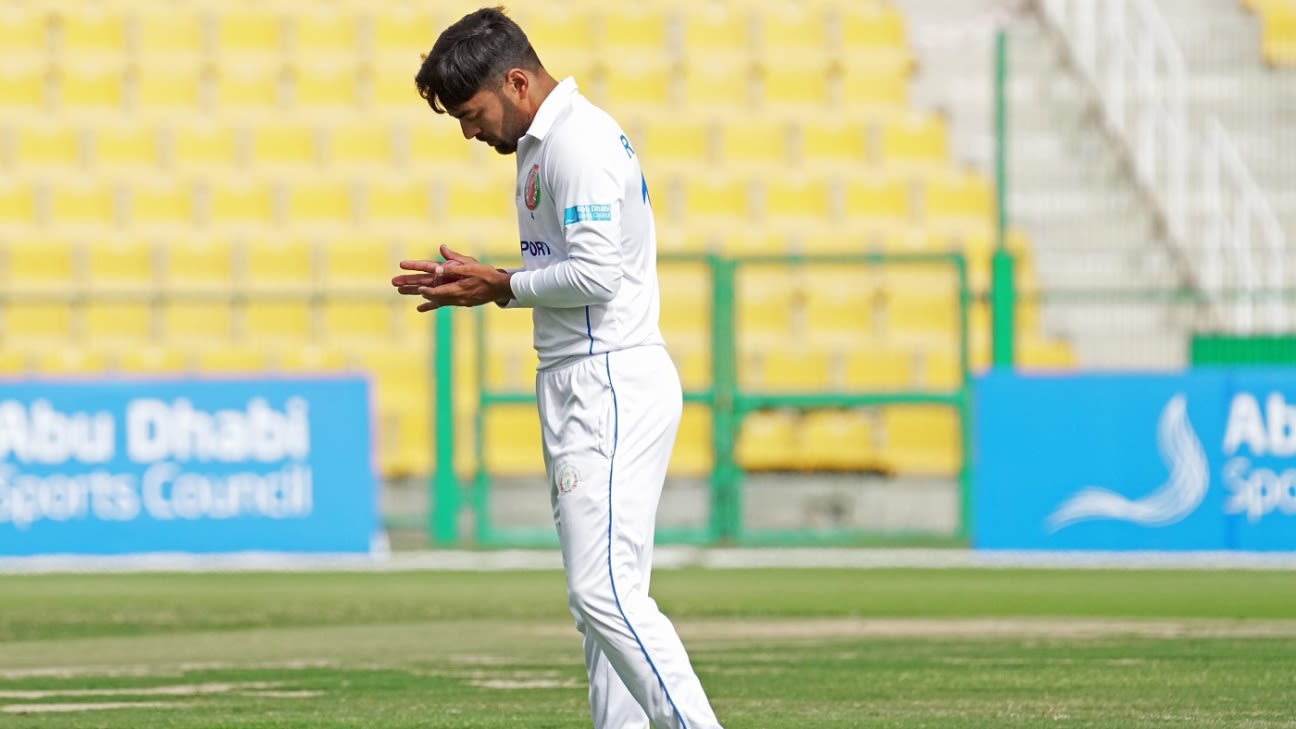
"Although he made a comeback in the series decider today, the team management & medical team have decided to prioritize his long-term fitness," the Afghanistan Cricket Board said on Twitter. "Despite being fit, our selectors believe it is crucial not to rush his return. They have taken a cautious approach to ensure he receives adequate rest and rehabilitation allowing him to regain full fitness before the upcoming BCBtigers series, the ACC Asia Cup & the ICC CWC 2023."
Vice-captain Rahmat Shah is likely to feature alongside Abdul Malik and Ibrahim Zadran to add familiarity to the top order. Afsar Zazai and Ikram Alikhil are their wicketkeeping options, with the latter offering back-up.
Javed Ahmadi and Wafadar Momand are among the players who are missing out from their last Test in March 2021, while 34-year old Noor Ali Zadran has found a spot among the reserves.
The visitors are set to arrive in Bangladesh on June 10. They will be in Bangladesh in two phases: the first involving the Test, the second involving three ODIs and two T20Is in July.
Afghanistan Squad: Hashmatullah Shahidi (capt), Rahmat Shah (vice-captain), Afsar Zazai (wk), Ikram Alikhil, Ibrahim Zadran, Abdul Malik, Bahir Shah, Nasir Jamal, Karim Janat, Zahir Khan, Izharulhaq Naveed, Amir Hamza, Ibrahim Abdulrahimzai, Yamin Ahmadzai, Nijat Masood
Reserves: Noor Ali Zadran, Zia-ur-Rehman, Azmatullah Omarzai and Sayed Shirzad
Olivia Bell conjures dream spell as Diamonds all but vanish from Finals Day race
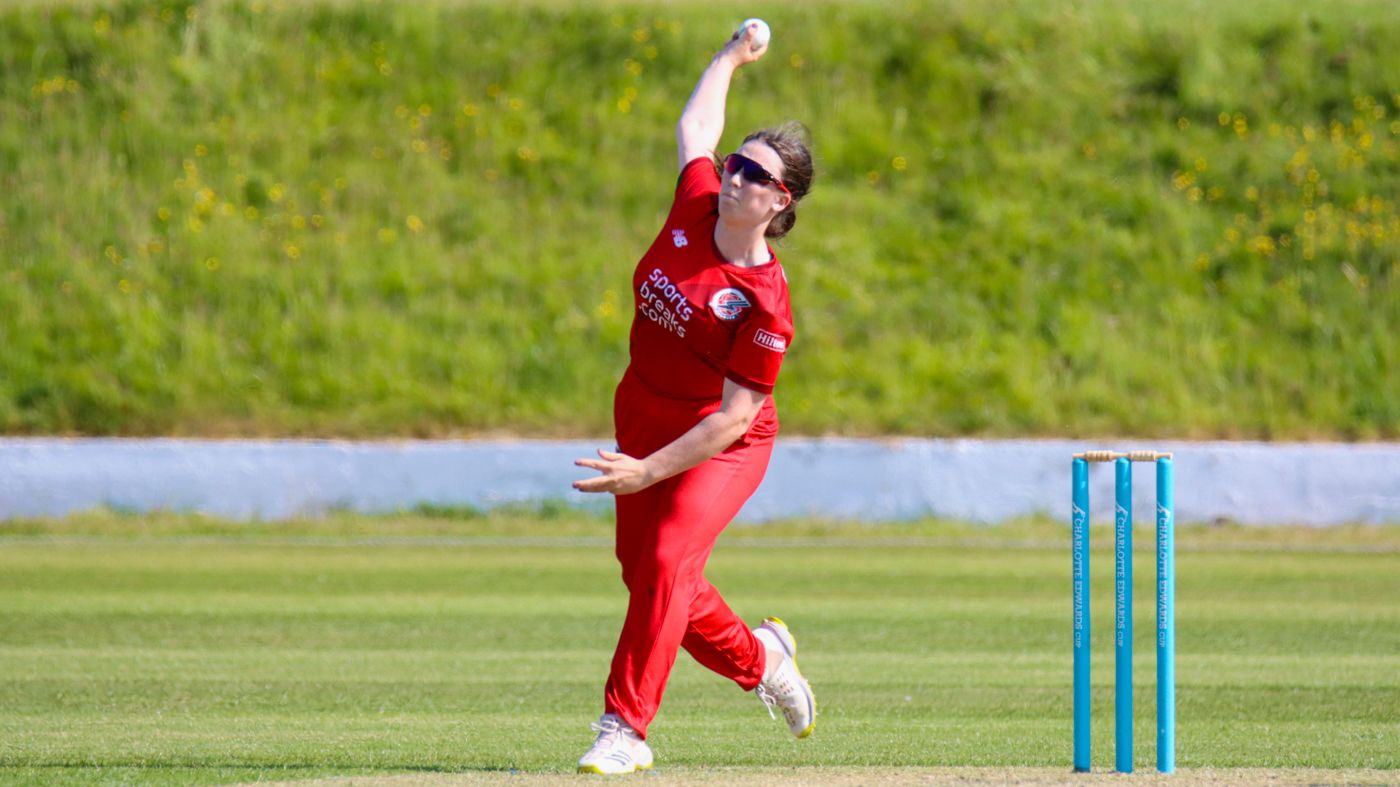
Thunder 97 for 3 (F Morris 42*) beat Northern Diamonds 96 (Kalis 24, Bell 3-9) by seven wickets
Thunder qualified for their first ever Charlotte Edwards Cup Finals Day this weekend thanks to a landslide seven-wicket win over local rivals Northern Diamonds, who they all but knocked out of the competition in the process at Blackpool's Stanley Park.
Not only have Thunder qualified for their first ever T20 regional Finals Day, at New Road on Saturday, by securing a top-three berth, it is the first time in three-and-a-half seasons of regional cricket that they have got out of the group stage of either this or the Rachael Heyhoe Flint Trophy. And they have done so by winning four of their last five matches on the back of losing their first two.
For the Diamonds, finalists in 2021 and the reigning RHFT 50-over champions, they wasted a golden chance to qualify having won their first four games. They needed just one win to guarantee qualification from their remaining three fixtures but lost all of them.
It would take a miracle defeat from Southern Vipers against Sunrisers later for the Diamonds to qualify on net run-rate. But they can realistically prepare for a free weekend.
After the Diamonds elected to bat, Thunder piled on the pressure with some excellent bowling and fielding on the way to the lowest total of this season's competition.
New-ball left-arm quicks Tara Norris and Mahika Gaur both claimed two wickets, as did the off-spin of Morris, who later picked the perfect time to post her highest score for Thunder since joining over the winter.
Naomi Dattani claimed three catches at long-on, affected a run out and opened the batting with 20.
The Diamonds got off to a disastrous start, losing Leah Dobson, captain Hollie Armitage - the leading run-scorer in the competition - and Lauren Winfield-Hill all caught within the first 15 balls.
Dobson and Armitage fell to Norris in the space of four balls at the end of the second over, caught at mid-on and backward point respectively, before Winfield-Hill drilled Gaur to long-on. And they failed to recover.
Bess Heath followed when she aimed a wild swing at Gaur at the start of the fifth over, losing off and middle stumps, and the Diamonds were 19 for 4 and Thunder were dreaming of Finals Day, where they will play in the afternoon semi-final against a yet-to-be-determined qualifier. The winner will play the Blaze in the evening final.
South African Chloe Tryon threatened a recovery by calmly moving in the twenties, but she was bowled by Morris trying to play expansively through the off-side. And returning Beth Langston, playing her first match since August following an ACL injury, followed four balls later when bowled by Bell.
Tryon and Dutch international Sterre Kalis with 24 were the only Diamonds batters to make it beyond 20, with wickets continuing to fall.
Kalis holed out to long-on off Morris before Bell had Katherine Fraser the same way - the third of Dattani's catches in that position - as the score fell to 93 for 8 in the 18th over.
Bell then had Katie Levick caught at cover for a golden duck before Grace Hall was run out to wrap up the innings with eight balls unused.
Thunder handed a debut to fledgling left-arm spinner Sophie Morris, who bowled two wicketless overs before watching her batting team-mates seal victory.
Openers Liberty Heap and Dattani both fell as the score slipped to 64 for two inside 10 overs, but they were only minor blemishes.
Heap fell to a smart Kalis catch running back towards deep gully off Fraser's off-spin before Dattani guided seamer Langston to short third.
But Morris was strong on both sides of the wicket to spark joyous scenes by the seaside despite the late departure of Deandra Dottin to Levick.
Jaguars unveil vision of 'stadium of the future'

JACKSONVILLE, Fla. -- The Jaguars on Wednesday released an early look at a renovation of what they're calling "the stadium of the future," a multibillion-dollar project that includes developing the area around TIAA Bank Field and a critical piece of the franchise's future in Jacksonville.
The base 62,000-seat open-air stadium includes a shaded canopy the team says will reduce the heat factor by more than 70%, a main concourse four times wider than the current one, and lookout decks that offer views of the city. The two pools, added in 2014 as part of a $63 million renovation, remain, as do the large video boards that span the length of each end zone.
The stadium can expand to seat 71,500, and the nearly five-minute video presentation included references to playing host to music festivals, concerts, international soccer matches and tournaments, and potentially the NFL draft. It also included a brief clip of an NCAA Final Four, but no mention of potentially hosting a second Super Bowl.
The team did not mention cost, but FloridaPolitics.com reported this week that the entire cost of the project -- including the development of the area around the stadium -- could be as much as $2.068 billion, with the stadium improvements costing between $1.2 billion and $1.4 billion.
FloridaPolitics.com also reported -- according to documents it obtained that were filed in May with the city -- that the city and Jaguars owner Shad Khan would split the cost of the entire project 50-50 and that the stadium renovation could take as long as four years.
"We have reached the end of this important and initial phase of this project, the design of the stadium we envision will be the home of the Jacksonville Jaguars and serve our entire community for generations to come," Khan said in a statement. "From stadium discussions starting in 2016 to the formal process launched in July 2020 and now concluding, our objective has always been the same -- lock in a promising future for the Jaguars and help our downtown become an economic engine to lift all of Jacksonville, particularly areas that have been underserved. Being able to share the video and stadium design highlights with the people of Jacksonville is a significant step forward in that effort."
The Jaguars' current lease at TIAA Bank Field expires after the 2029 season. A new lease would need approval from the NFL and 75% of the league's owners. Renovating or building a new stadium is expected to be a critical part of getting the approval.
If the city and the Jaguars agree on a two-year stadium renovation plan, the Jaguars would be forced to play their home games elsewhere. Options include the University of Florida's Ben Hill Griffin Stadium and Orlando's Camping World Stadium. Other sites mentioned include the nearby 11,000-seat baseball stadium that houses the Triple-A affiliate of the Miami Marlins and a 9,400-seat stadium at the University of North Florida.
The Jaguars play one home game annually in London, and multiple home games in the United Kingdom also could be on the table.
If the team and city agree to a four-year renovation plan, the team could still play its home games at TIAA Bank Field.
The team is hosting 14 events across Jacksonville over the next two weeks to allow residents and fans to learn more about the stadium renovations.
The Iron Sheik, WWE Hall of Famer, dies at 81
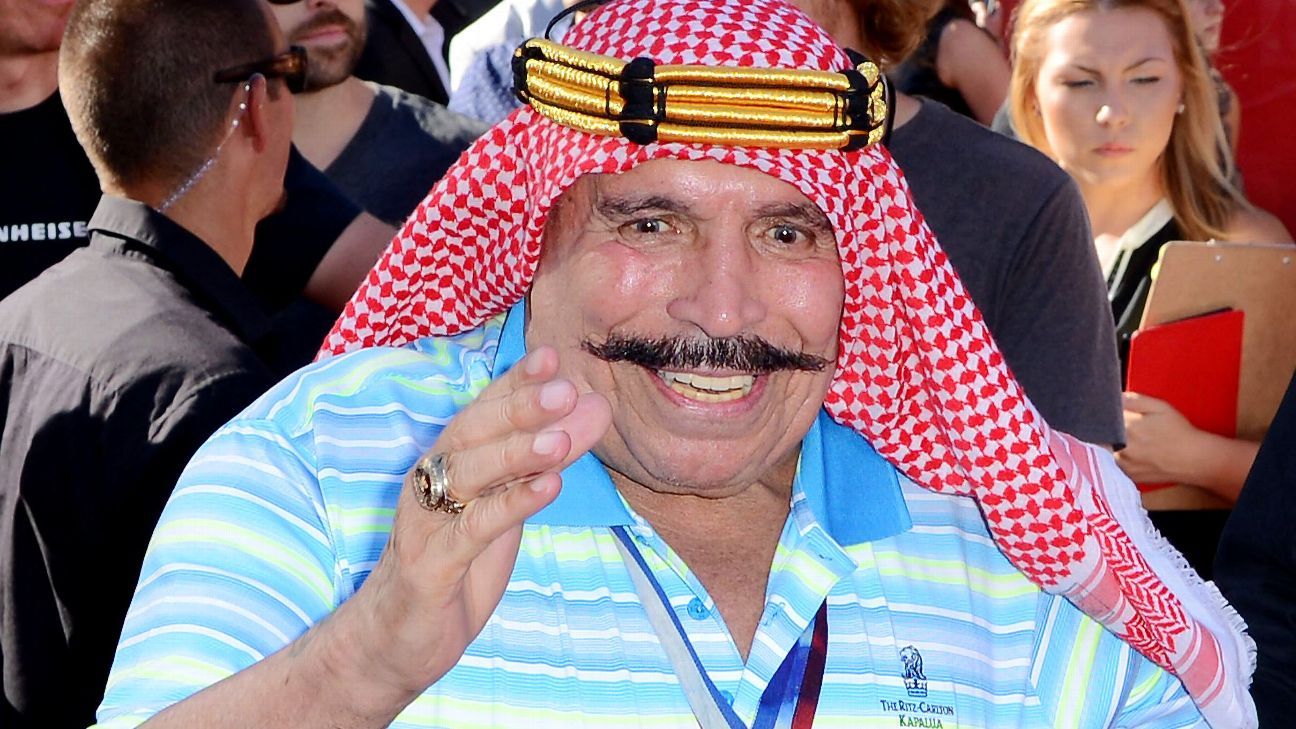
The Iron Sheik, a standout Greco-Roman wrestler from Iran who gained global fame in professional wrestling with his 1980s rivalries against the likes of Hulk Hogan, died Wednesday at the age of 81, according to his official Twitter account.
Sheik, whose real name was Hossein Khosrow Ali Vaziri, was a former WWF World Heavyweight champion and was inducted into the WWE Hall of Fame in 2005. As a hated heel, he had legendary battles in the 1980s against Hogan, Bob Backlund and Sgt. Slaughter. Vaziri beat Backlund for the WWF title in December 1983, and, one month later, Hogan defeated Vaziri in front of more than 20,000 at New York's Madison Square Garden to win the belt for the first time. The match helped catapult Hulkamania into a phenomenon, leading into the first WrestleMania one year later.
"With his larger than life persona, incredible charisma, and unparalleled in-ring skills, he captivated audiences around the globe," said the statement from his Twitter account. "He was a trailblazer, breaking barriers and paving the way for a diverse range of wrestlers who followed in his footsteps."
Before starting in professional wrestling, Vaziri was a bodyguard for the last Shah of Iran, Mohammad Reza Pahlavi. He was a Greco-Roman wrestler in his home country, nearly making the 1968 Olympic team. Vaziri then moved to the United States, where he won an AAU Greco-Roman wrestling championship at 180.5 pounds and became an assistant coach for the U.S. wrestling team, including its Olympic team in 1972.
Around that time, he broke into professional wrestling in Minnesota with AWA promoter Verne Gagne under coach and catch wrestling legend Billy Robinson. Vaziri was given a character based on his Iranian heritage (inspired by the outset of the Iranian Revolution) and he leaned into it, shaving his head, growing a handlebar mustache and wearing shoes curled at the toes, which went on to be an iconic look. He joined the WWF for the first time in 1979, winning Madison Square Garden's first battle royal match and having matches with the likes of Bruno Sammartino and Chief Jay Strongbow.
After dropping the WWF title to Hogan in 1984, Vaziri had a memorable host of matches with Sgt. Slaughter, a U.S. military-based character. The feud played off the real-life tensions between the U.S. and Vaziri's Iranian homeland. Vaziri and Slaughter had a violent, bloody "boot camp" match in June 1984 at Madison Square Garden that was highly acclaimed and still holds up today.
In recent years, Vaziri developed a cult fan following on Twitter, even from people who never watched his legendary battles inside the squared circle.
Vaziri is survived by his wife, Caryl, to whom he was married for 47 years; his children, Tanya and Nikki; and his son-in-law, Eddie, according to his Twitter account.
"Beyond the glitz and glamour of the squared circle, The Iron Sheik was a man of immense passion and dedication," the Twitter statement read. "He embodied resilience. He overcame countless challenges in his life, both inside and outside the wrestling ring. His journey from a small village in Iran to becoming one of the most recognized figures in the world of wrestling is a testament to his unwavering dedication."
Sources: MLS' Inter Miami favorite to land Messi
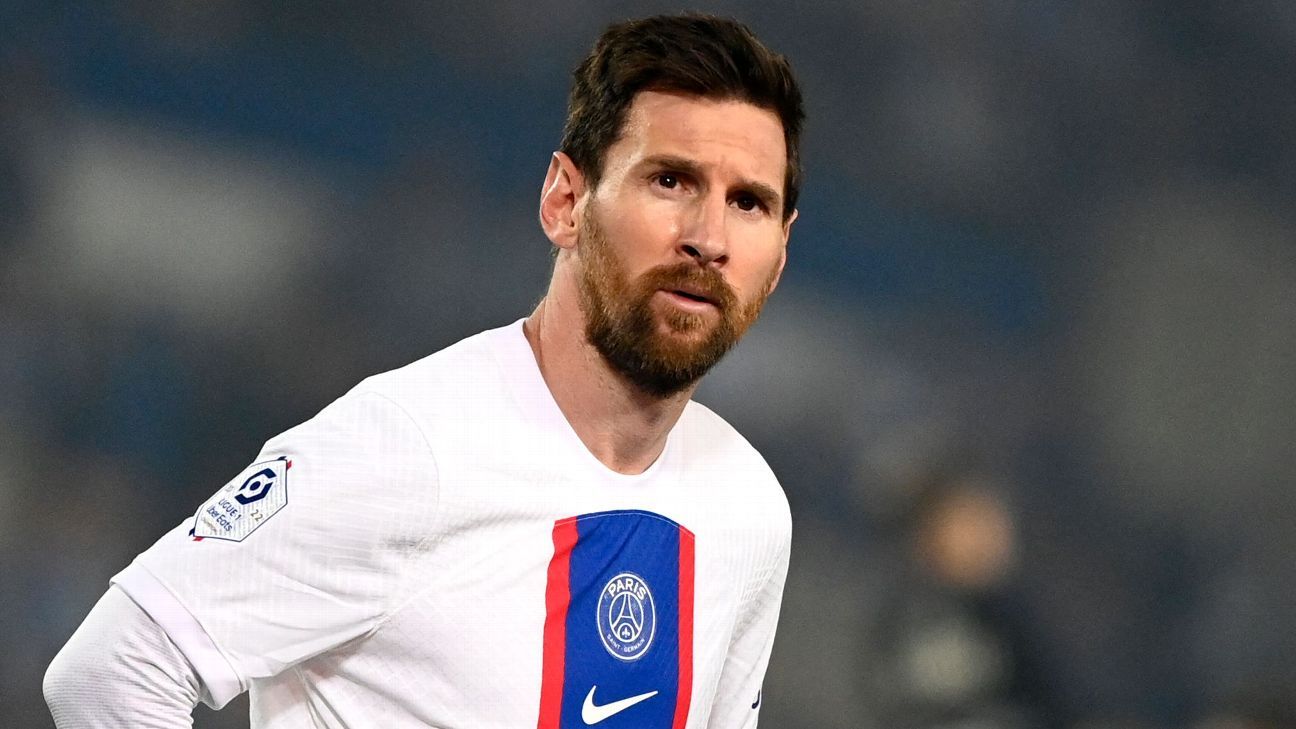
MLS club Inter Miami CF have emerged as the front-runner to sign Lionel Messi, sources told ESPN.
Although no deal is done yet, sources said terms include an option for part-ownership of the MLS club but would not involve any subsidy from MLS similar to that received by David Beckham. The deal also includes an agreement with the league's broadcast rightsholder Apple TV, sources added.
Sources have told ESPN's Jordi Blanco that despite Barcelona's efforts to adjust their payroll, Messi has opted not to wait any longer and has ruled out Barcelona as a destination for next season.
Meanwhile, sources have told ESPN that senior figures behind Al Hilal's attempt to sign Messi fear he has lost interest as he weighs his next move.
Media reports Wednesday said that the Argentina star has reached a deal with Inter Miami, but a spokesperson for the Major League Soccer club declined comment when asked to confirm or deny by ESPN's Jeff Carlisle.
- Stream on ESPN+: LaLiga, Bundesliga, more (U.S.)
Messi, 35, is due to become a free agent when his contract at Paris Saint-Germain expires on June 30, and the French champions announced last week that the former Barca star, who moved to Parc des Princes in 2021, will not remain at the club beyond the end of his deal.
ESPN reported in April that Al Hilal, one of four Saudi Pro League clubs taken over by Saudi Arabia's Public Investment Fund this week, had made an offer to Messi, with sources saying the club believed they had a "50-50" chance of signing the player.
But while Al Hilal's offer remains on the table, sources in Saudi Arabia have told ESPN that contact with the Messi camp has diminished and that there is a growing acceptance that the Argentine is now torn between a return to Barca, with whom he won 10 LaLiga titles and four Champions League titles before his exit to PSG, and a move to the Miami franchise part-owned by David Beckham.
One source said that the choice for Messi now boils down to an emotional return to Barca or a commercially driven move to Inter Miami.
Separate sources have also told ESPN that Barcelona, although determined to re-sign their greatest player ever, could not overcome "complications" to get a deal done due to the need to prove the financial feasibility of any agreement to LaLiga.
A Messi move to Miami, who parted company with coach Phil Neville last week, could represent the biggest signing ever for MLS.
Miami have reportedly held talks with Tata Martino about taking the managerial role there. Martino is a former manager for both Argentina and Barcelona, having worked with Messi on both teams.
According to reports, Miami's offer to Messi includes complex sponsorship deals with brands such as Apple and Adidas.
Apple TV+ announced Tuesday that it has secured the rights to a four-part documentary about Messi's career. Apple TV+ is also in the first year of a TV rights deal with MLS.
Information from ESPN's Mark Ogden, Jeff Carlisle, Jordi Blanco and Sam Marsden was included in this report.
Rory: Feel like 'sacrificial lamb' and 'still hate LIV'
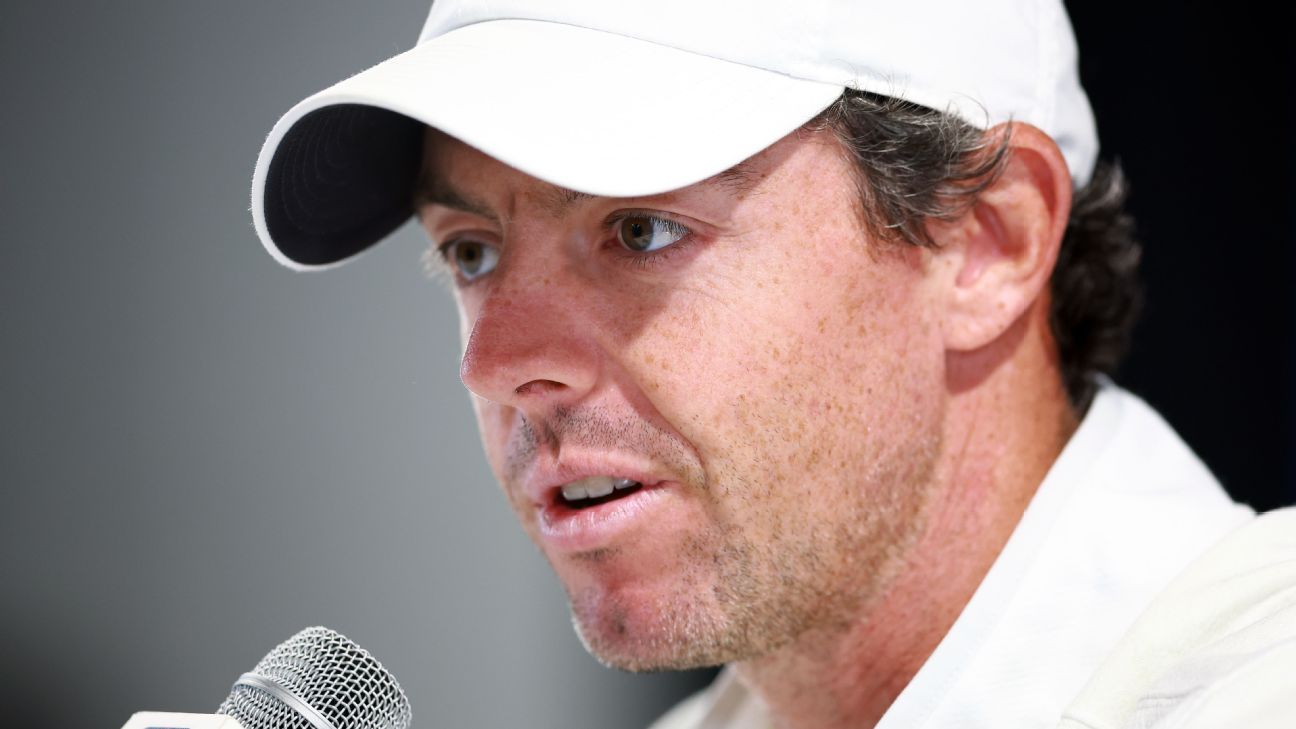
TORONTO -- Rory McIlroy said he's resigned to the fact that the PGA Tour will have to accept money from Saudi Arabia's Public Investment Fund, but he's satisfied that the LIV Golf League won't be part of the alliance.
Speaking to reporters ahead of this week's RBC Canadian Open at Oakdale Golf and Country Club, McIlroy said Wednesday he believes the LIV Golf League is going away after this season.
"I still hate LIV," McIlroy said. "Like, I hate LIV. I hope it goes away, and I would fully expect that it does. I think that's where the distinction here is. This is the PGA Tour, the DP World Tour and the PIF -- very different from LIV."
McIlroy, one of the PGA Tour's most outspoken loyalists during its 18-month battle with the LIV Golf tour for the best players in the world, said he still has confidence in PGA Tour commissioner Jay Monahan but that "it's hard for me to not sit up here and feel somewhat like a sacrificial lamb and feeling like I've put myself out there and this is what happens."
Monahan has been criticized for keeping PGA Tour members, including McIlroy, in the dark during negotiations with Yasir Al-Rumayyan, the governor of Saudi Arabia's sovereign wealth fund, which is financing LIV Golf.
"I do," McIlroy said about having confidence in Monahan. "And, look, I've dealt with Jay a lot closer than a lot of those guys have. From where we were a couple of weeks ago to where we are today, I think the future of the PGA Tour looks brighter as a whole, as an entity."
McIlroy said Monahan's meeting with more than 100 PGA Tour players Tuesday was heated. McIlroy said much of the frustration came from players who are trying to keep their PGA Tour cards and fear that they'll lose spots in fields of future tournaments if LIV Golf players are allowed to return to the PGA Tour.
"There still has to be consequences to actions," McIlroy said. "The people that left the PGA Tour irreparably harmed this tour, started litigation against it. Like, we can't just welcome them back in. That's not going to happen."
Monahan suspended more than 30 PGA Tour members for competing in LIV Golf tournaments without conflicting-event releases, including past major champions Phil Mickelson, Brooks Koepka, Dustin Johnson, Bryson DeChambeau and others.
On Tuesday, Monahan said a plan was in place that would allow those players to reapply for PGA Tour membership after the 2023 season. Monahan said he wouldn't release details until the partnership with PIF and the DP World Tour is finalized.
McIlroy said he received a text message from PGA Tour policy board member Jimmy Dunne on Monday night, asking if they could talk the next morning. McIlroy said he found out the news from Dunne at about 6:30 a.m. ET Tuesday, a couple of hours before other players learned about the partnership on social media and other media outlets.
McIlroy said Dunne told him, "Rory, sometimes you got 280 over water, you just got to go for it."
"I told Jay you have galvanized everyone against something and now they are our partners," McIlroy said. "The Saudis want to spend money in golf and it's not going to stop. How can we get that money into golf and use it the right way? ... It's hard to keep up with people who have more money than anyone else."
Overall, McIlroy said he believed the unexpected partnership will be good for golf.
"I think ultimately when I try to remove myself from the situation and I look at the bigger picture, and I look at 10 years down the line, I think ultimately it's going to be good for the game of professional golf," McIlroy said. "I think it unifies it and it secures its financial future."
Doctor: Whitehead likely in camp after surgery
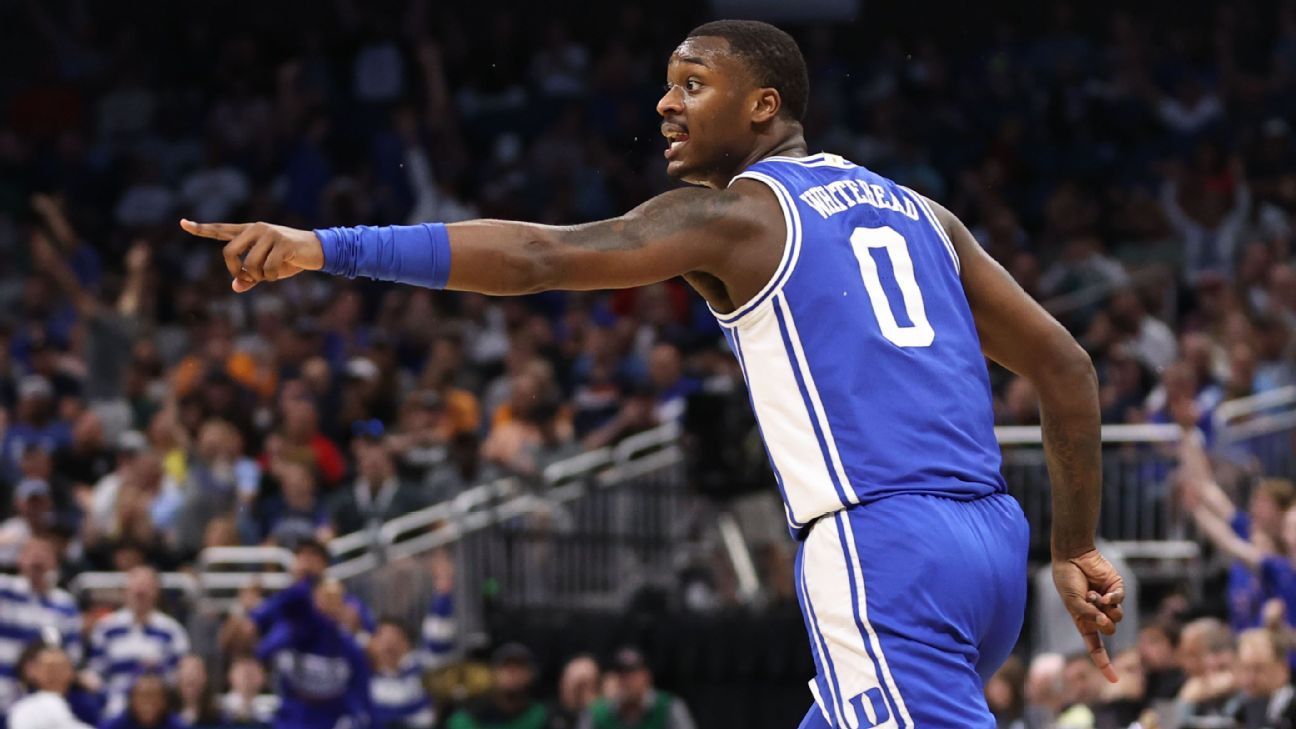
Duke freshman forward Dariq Whitehead -- a projected first-round pick in this month's NBA draft -- underwent a right foot procedure but is expected to be fully recovered for the start of NBA training camp.
Whitehead, who had an initial procedure on his right foot in August, underwent a second surgery at Hospital for Special Surgery in New York this week that Dr. Martin O'Malley called a "revision operation with bone grafting for a fifth metatarsal Jones fracture."
"He will begin his rehab process in two weeks and should be ready for full participation at the start of NBA training camp," O'Malley said in a statement to ESPN.
Whitehead went No. 26 in ESPN's June 1 mock draft. He has been meeting with a number of teams ahead of the June 22 draft, including visits with those in the top half of the draft board, sources said.
Whitehead was a McDonald's All American who entered Duke as a consensus top-10 draft prospect. He played 28 games, averaging 8.3 points in 20.7 minutes after returning from the injury. He shot 43% on 3-pointers.
A native of Newark, New Jersey, Whitehead played his prep ball at Montverde Academy in Florida.
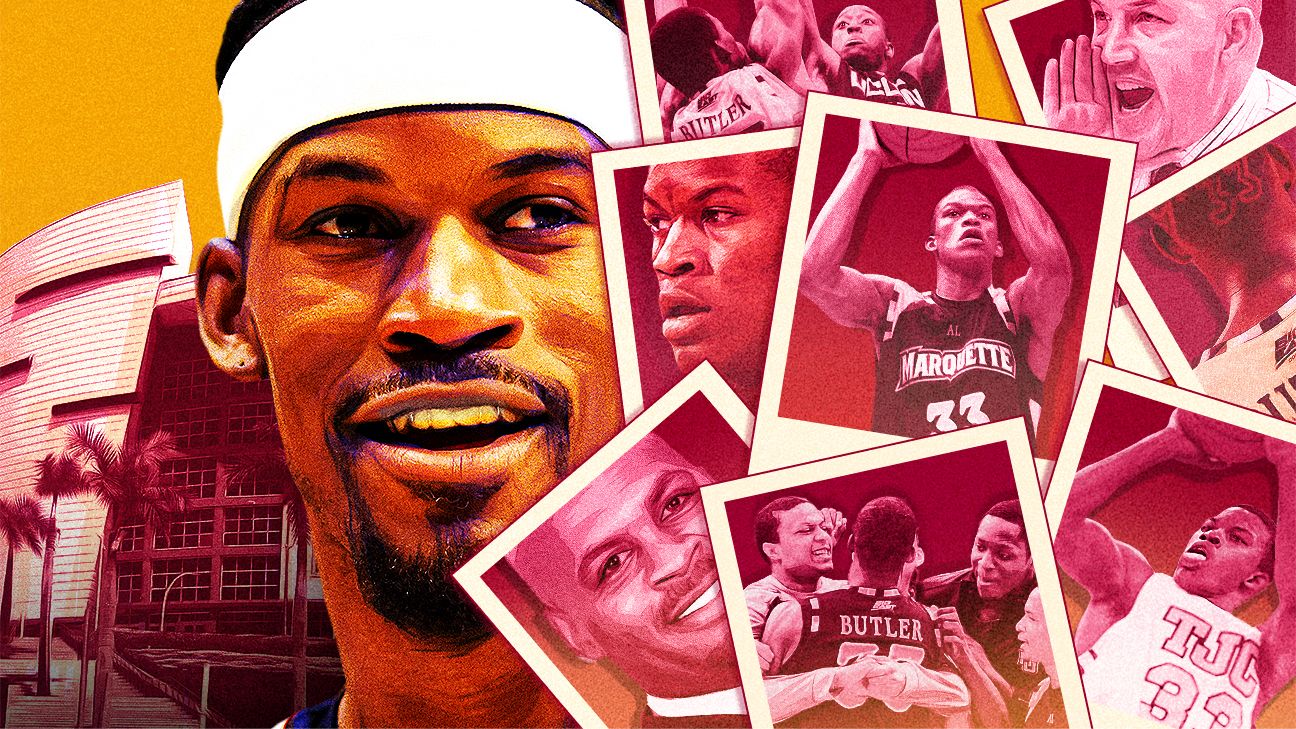
WAY BEFORE JIMMY BUTLER BECAME JIMMY BUCKETS, before he'd take a play-in No. 8 seed to the NBA Finals, before his voice could take over practices, games and news conferences, he was just a frustrated sixth man for a fringe NCAA tournament team.
Then everything changed.
It was 2009. Butler was a junior at Marquette when Darius Johnson-Odom arrived. Almost immediately, Butler noticed the way assistant coach David "Aki" Collins bonded with the sophomore. Collins called him "DJ," and he went from pushing DJ hard to putting his arm around the new kid when he struggled.
It was warm. Parental, almost. Butler hadn't experienced much of that in his life.
To be sure, it was not unusual for rookies to be put through the crucible with that rugged Marquette group. Butler had gone through it the year before with a roster full of grinders and juco castaways like himself. But there was something different about Johnson-Odom. When his teammate would struggle at the brutal 5:30 a.m. practices, hands on hips as Butler powered the Golden Eagles through a series of full-court runs they called "22s," Collins would swoop in with a pep talk or a kick in the butt.
Butler noticed every time.
"You guys seem like family," Butler would say. He'd pause for a moment and smile. "So how do I get in the family?"
Both of them would laugh and shake their head. "You're not in the family yet, Jimmy," they'd say. They'd joke around about it every day. But there was a twinge of pain underneath Butler's ribbing.
By that point, Butler was on OK terms with what he's described as a difficult upbringing; neither of his parents were present for large chunks of time. He ended up bouncing around living situations in the Houston area before heading off to Tyler Junior College for his freshman year. When he arrived at Marquette as a sophomore, he entered into the most stable three-year period he'd ever had.
He didn't talk much about his background; he didn't have to. "You don't need to know how he grew up," Johnson-Odom says. "You can feel it when you're around him."
But it wasn't family yet for him at Marquette. Butler's first year in Milwaukee in 2008-09 was bumpy. He couldn't get on the court early in the season, but eventually -- through his willingness to bang the boards and defend with a vengeance -- he carved out a role as a sixth man, averaging more rebounds (3.9) than shot attempts (3.1).
The next year, top recruit Johnson-Odom arrived at the same time that Butler, now a junior, had been asked to take a leap forward. Coaches still wanted the 6-foot-7 Butler to guard the best player on the other team -- some nights that was a guard like Scottie Reynolds, others it was 6-foot-11 Andre Drummond. But they also wanted him to look for more scoring and leadership opportunities. Butler was thrilled ... but also a little intimidated. He'd been the No. 73 recruit in Texas as a high school senior, then needed a year of junior college. This was the first time anybody had asked him to be the man.
"He was unsure of himself," grad assistant Jamie McNeilly says. "He was finding himself. He had a ways to go upon arrival."
He did have a ways to go. But he got there; nothing would stand in his way. And where he has gone over the past 15 years is almost without precedent. An unrecruited four-year American college player who used to not score but now is known as Jimmy Buckets? An athlete/coach who both constantly drags teammates and yet is beloved by them? A superstar who wasn't a superstar until he was in his late 20s and now feels damn near inevitable? That blend doesn't really exist in sports, and it didn't exist in Jimmy Butler.
Until that 2009-10 season.
IN THE FALL OF 2009, Canadian guard Junior Cadougan arrived at Marquette. When he told teammates he was going to be living with Butler, he didn't understand at first why some of them exchanged side glances.
The looks were because older Marquette players had begun to see a new Butler trying to make a leap from being the best bench guy to just being the guy.
It wasn't an easy transition. Marquette's top scorers the year before, Wes Matthews and Jerel McNeal, were off to the NBA. But future first-round pick Lazar Hayward was entrenched as the likely top offensive player on the 2009-10 team, and Johnson-Odom immediately entered the lineup as a double-digit scorer. Many of their plays were drawn up for those two, with Butler as a third option. He would have to do all the rebounding and find points in the couch cushions of the Marquette offense. His new role was actually more of an expansion of the old one.
That's what Butler is so good at, though. Monarch, the assistant who discovered Butler at Tyler, uses an interesting phrase to describe him: "an extremely aggressive observer." He says Butler recognized that he often wouldn't have the most explosive first step, or most accurate 3-point shot. Even the best aspects of him now, as an NBA superstar scoring 22.9 points per game, aren't really coachable or transferrable. "You didn't have to have a lot of meetings with him," Monarch says. "He'd figure it out. He was going to figure out that he was going to score in transition and on offensive rebounds."
Cadougan tore his Achilles almost immediately, so he watched from the sideline as Butler started to put the screws to his teammates. The team motto was "Grind together, shine together," and that preseason was all the grind with none of the shine, with Butler being a nonstop voice in everybody's ears.
As the season got closer, Butler amped up what teammates had already been seeing in off-season workouts. Butler declined an interview request for this story. But in interviews with seven former players and coaches from that season, they describe what sounds a lot like the origin story of the guy who'd eventually take over a Minnesota Timberwolves practice 10 years later, telling his teammates he'd beat them with the third-stringers ... and did, as he yelled at coach Tom Thibodeau, "You f---ing need me. You can't win without me."
In preseason practices that fall, Butler was relentless. During full-court sprints, Marquette players would be partnered up with a few other teammates and take turns doing timed runs. Butler would sometimes spot someone cut off their run a few inches before touching the end line. Sometimes he would bust his own group, forcing him to rerun the sprints, too.
At first, eyebrows were raised from both players and coaches. But even back then, as a 20-year-old, Butler had a commanding presence, bordering on scary, and he knew how to weaponize his voice in a way that it felt inarguable -- a final decision had been reached, and now you would do it.
As the season opener approached, coaches were impressed enough to bestow an unlikely honor on their best bench guy from the year before: Jimmy Butler was given full autonomy to stop practice any time he wanted, and he wasn't shy about using it.
He would grab the leadership task by the throat. But the question still remained -- could Butler actually score?
IN SEPTEMBER, MARQUETTE announced that Cadougan was expected to miss the season. So he rehabbed as the team practiced, and he and Butler ended up spending almost no time together other than in their room. But woo boy, living with Jimmy Butler is quite memorable.
Marquette players lived in Humphrey Hall, in the corner suites of every one of the six floors -- rooms 161, 261, 361, 461, 561 and 661, with a set of stairs that they used to zip up and down between rooms. Butler's room often became the place to hang out, and Cadougan would help set up blackjack games in the room.
Butler famously loves country music, so he'd cue up Lil Wayne followed by Tim McGraw, followed by Young Jeezy, followed by more country. And teammates were often surprised when a certain musician popped up more than you'd expect. "He had a thing for Miley Cyrus," guard Maurice Acker says. "A big-time thing."
Butler loved "Hannah Montana." A lot. He'd watch the show in their room, to the point where some teammates would stick their heads in, groan and turn around. "Jimmy's watching Disney Channel again," they'd say, and they'd find another room with a 61 in it.
Almost everybody got cornered at one point or another to listen to Butler talk about what a young megastar Cyrus was. Cadougan chuckles about the time Butler packed up his stuff and left carrying his brand-new Hannah Montana backpack over one shoulder. Or another time, when Butler first pulled out a pink bunny costume that he'd sometimes cruise around campus wearing. "Jimmy genuinely did not care what people thought about him," Cadougan says. "Not many people would actually ever make fun of him. But even if you did, he never really took it seriously."
Butler somehow balanced those plates -- free-spirited Hannah Montana guy along with wannabe player/coach -- in a way where the season began with teammates wanting to see him succeed once the games started. And Butler did.
In Marquette's opener, Butler scored 10 points in the first six minutes, finishing with a career-high 27 points to go with a team-best 13 rebounds. He kept it going, hitting 33-of-51 on field goals (65%) and scoring 100 points as Marquette opened 6-0. Cadougan had begun light workouts with the team and ... well, they weren't light for very long. His relationship with Butler began to change from roommates to teammates. Which meant that Butler constantly dogged him to push himself. It was never mean-spirited. When Cadougan was able to gut out one sprint, Butler would wonder, why not two? Or three?
Butler was usually right. Cadougan found himself ignoring the urge to quit a difficult rehab, then Butler would then signal his approval in his own modest way. "Jimmy isn't a hug guy," Cadougan says. "He's a hard pat-on-the-back guy."
The question was the same back then as it is now. Butler's relentlessness clearly works, for himself and for his teammates. But do his teammates like it? Nobody interviewed for this story said they enjoyed it. But they all appreciated it. When asked several questions about whether he liked Butler's prodding, Cadougan would pause and let out some version of, "Well..." before talking about the benefits of having somebody who sees more in you than you see in yourself.
After the 6-0 start, the Marquette ship got wobbly, especially on the road. As the team headed for Syracuse to face the No. 5 Orange on Jan. 23, the season was looking like an NIT-level disappointment. The Golden Eagles were 11-7 overall and 0-4 away from home. They would get so frustrated that a bunch of players and coaches, including Butler and Buzz Williams, had stopped shaving and getting haircuts. They wanted to match the season's ruggedness.
The ruggedness didn't end that night, either. Butler scored 13 and Marquette fought Syracuse to the bitter end of a 76-71 loss. But Williams had begun to see sparks -- he thought the Golden Eagles were close. After the game, he told the team, "Keep fighting. I don't know when it's going to all come together. But it will."
One minor victory buried in that box score? A young point guard had made his college debut and played eight scoreless but miraculous minutes. Yep, Junior Cadougan was somehow officially in the lineup months ahead of schedule. Just in time for the biggest game of his roommate's life.
A FEW DAYS LATER, Marquette beat Big East doormat Rutgers 82-59, led by Butler's 16 points. That set the scene for essentially a bubble-buster game at UConn on Jan. 30. The Huskies were No. 19 in the country, with a signature win a few days earlier over No. 1 Texas. That Kemba Walker-led team was a year away from winning the NCAA title.
The week of that 2010 game, Williams ratcheted up the pressure in practice, aided by Butler. Everybody knew the NCAA tournament stakes of ending January in a tailspin. This trip to Connecticut was essential, and Butler wouldn't let anybody forget it. "We needed that game bad," guard Maurice Acker says. "Jimmy knew he couldn't let us lose."
Butler had a routine every day leading up to a game back then. He'd go to Subway at lunchtime and get a 12-inch sub, chips and a drink and head into McNeilly's office. For Butler's entire time at Marquette, he'd always ask the same question to McNeilly: "What do you have for me today?"
Then McNeilly would tell him who the coaches wanted him to guard and what they needed him to do. It was very prescriptive from the coaches to Butler. No questions asked.
Something was different the day before the UConn game, though. McNeilly told him they wanted Butler to guard Stanley Robinson, UConn's 6-foot-9 senior who had torched Marquette for 19 and 10 the previous year in an 11-point win. Butler ate his Subway and watched Robinson's tape for a while, but then said, "Put Kemba Walker up."
"Why?" McNeill asked.
"Just put him up," Butler said.
Walker was UConn's best player, and he was a year away from being the best player in the country. He was also a 6-foot lightning bolt that Butler wouldn't be guarding. McNeilly eventually shrugged his shoulders and put on some Walker tape.
In the game, Marquette took a 34-29 lead into halftime. But the entire first half, Walker was getting to wherever he wanted on the court and UConn was killing Marquette on the boards (the Huskies finished the game with a 44-25 rebounding edge). There were bad vibes about where the game was headed.
"Let me guard Kemba," Butler told McNeilly as they headed into the locker room at the half.
"I can't make the case to Buzz to switch you to Kemba Walker," McNeilly said.
But Butler started doing hand motions and mimicking Walker's game -- "right to left, pump fake, shoot," for instance. He ended every Walker imitation by saying, "I'll be there." By the end of Butler's pleading, McNeilly agreed with Butler. So did Williams. The aggressive observer had done his homework.
The switch worked -- sort of. Walker played a good second half and UConn surged ahead at the 8:08 mark. Butler was relentless and effective in spurts. Walker still got his points. But it sure seemed like he would have gotten more if they hadn't put Butler on him after the half.
"He didn't lock down Kemba," says McNeilly, now an assistant at TCU. "But the effort he gave -- kind of like he gives with the Heat now -- it's infectious. It makes guys play harder and better than they should be."
With less than 30 seconds to go, the score was tied 68-68 and Walker tried a runner that rattled out. Butler got the board and called timeout. On the ensuing play, the inbounds went to Butler. But he didn't have many options as the clock wound down. He drove to the right, down into the lane, and with three seconds left, took an off-balance jumper.
It was a low-percentage shot. But it's the kind of shot that young Jimmy Butler would slowly come to master. With a hand in his face and his body fading away out of bounds along the baseline, the ball dropped right through the net.
Marquette 70, UConn 68. The first road win on an opponent's home-court that season. "That game was really, really, really his staple game," Cadougan says. "That was the time when Jimmy arrived."
The team celebrated at half court. The last image of the broadcast that night shows three players -- Acker, Johnson and baby-faced Jimmy Butler, chomping gum -- walk off together, happy but still looking a little rugged.
THE END OF THAT season wasn't exactly storybook for Marquette as a team. The Golden Eagles ripped off seven wins in eight games. Three of the wins were in overtime, including a thriller at St. John's, where Marquette had the ball on the final possession. Williams didn't have to think long about what to call -- he dialed up the exact play the Golden Eagles ran at the end of the season-turning UConn win. And it went the same exact way: Butler drained an impossible, ugly shot to win at the buzzer.
Marquette finished 22-11 to nab a No. 6 seed in the NCAA tournament. Even though Washington upset Butler & Co. in the first round, it felt like a minor miracle to have gotten there. The UConn game had ignited the season, the program and it had planted the seeds of what we now know as Jimmy Buckets. It's not so much that Butler became Buckets that year. It's that he discovered that Jimmy Buckets was possible.
The next year, Butler had fully grown into the best version of his college basketball player self. He was the team's best point finder on offense, a wet blanket on the best opposing offensive player most nights, and he was absolutely fearless in driving his teammates.
That especially was true for the new kid Jae Crowder, who transferred to Marquette for the 2010-11 season.
Crowder had a great first year (11.8 PPG, 6.8 RPG). But Butler and Crowder got into it regularly during practices, culminating in an NCAA tournament run-in where it took the entire Marquette roster of coaches and players to keep the two separated at one practice. After a scraggly regular season, Marquette had gotten an 11-seed and pulled two straight upsets over Xavier and Syracuse to get into the Sweet 16 against No. 2 seed North Carolina. "Jae was going through the motions a little bit," says assistant coach Tony Benford, now at TCU, "and Jimmy said, 'Hey, we're trying to win a national championship here!'"
Crowder didn't love the feedback and wouldn't back down. The two needed a few minutes to cool down but eventually fist-bumped and went back to work. Years later, when they played on the Heat together, Crowder and Butler renewed their chippy friendship. "We always had some guys that weren't getting along with Jimmy," Benford says. "He wasn't always loved and revered at every moment. But the respect never left. And guys usually tried to meet his challenge."
UNC blew out Marquette that night to advance to the Elite 8. If you look at the box score, Jimmy Butler's college career appears to have ended in a whimper. But he was just getting started on a professional career that eerily mirrors the slow rise he made in college.
The details are well-known NBA lore by now. The Bulls took Butler 30th overall in the 2011 draft. He started zero games as a rookie, averaging 2.6 points per game, so the Buckets part of him he'd found at Marquette was in storage for a while.
Then the rise began, using the same basic framework of doing the grunt work to get minutes, then slowly becoming the offensive force we've seen for the next decade. "Jimmy was a build," Johnson-Odom says. "He took steps each year. He did whatever he had to to get on the floor. Every year, he has kept building and building to become what he is now."
Other parts of his story are less known. Like how after his rookie year, he went back to Marquette. He asked his old roommate, Cadougan, to dinner. Cadougan thought Butler had invited a bunch of former teammates, but when he got there, it was just Jimmy. As they ate, Butler told Cadougan, "If you stay healthy and work hard, there's a place for you in professional basketball. You can do it. I'm proud of you."
Butler paid the tab that night, and Cadougan left feeling a sense of belief in himself that he hadn't before. Butler was right: Cadougan took Marquette to the Sweet 16 as a junior and the Elite 8 as a senior, then played 10 years in Canadian professional leagues before recently taking an assistant-coach job with the Vancouver Bandits.
On the walkout that evening in 2012, Cadougan said goodbye to Butler and braced for the hard back pat. He was a little surprised when Butler pulled him in for a big old hug. "That was a whole different vibe," Cadougan says. "That was big brother. This was heartfelt Jimmy."
A YEAR OR TWO AGO, during the NBA offseason, Collins' phone rang. It was Butler. He's risen steadily through the coaching ranks, from Marquette, to Memphis, to scouting for the Oklahoma City Thunder, and most recently on Micah Shrewsberry's staff at Penn State. He just took a new job at Overtime Elite as director of recruiting and retention. And through every stop, Butler still likes to check in and say hello.
They usually chop it up about life in the NBA, and Butler asks about coaching and Collins' family. He's grown especially close over the years with Collins' 14-year-old son, Daniel, who goes by DJ -- just like Johnson-Odom back at Marquette. Sometimes Butler will send a video to Collins for DJ where he says, "You gotta act right so your dad lets you come hang out with me sometime."
Collins remembers one exchange during Butler's rookie year in Chicago. Butler wasn't happy that coach Tom Thibodeau had him guard LeBron, Carmelo Anthony and other elite offensive players while not getting many scoring opportunities himself.
"On offense, I'm just standing in the corner," he told Collins. He scored all of 109 total points in 42 games.
"What does your paycheck look like?" Collins said.
Butler was confused. "What do you mean?"
"Is it signed?" Collins asked.
"Yes," Butler said.
"Does it have a Bulls logo on it?"
"Yes," Butler said, still perplexed at where this was going.
"Does it have a big dollar amount on it?"
"Yes," Butler said.
"And what does it say in the memo section?" Collins asked. He paused for a second as Butler racked his brain for what was in the lower left corner. "Does it say you get 20 shots a game? Does it say you get 10 shots a game?"
Butler said no, and he finally understood the point Collins was trying to make. "So essentially that memo is blank, and that's because you're supposed to do whatever your coach asks. Why don't you just be quiet and stay on the court by playing defense the way you know you can?"
And that's exactly what Butler did. He started 20 games the next year, pounding the boards off the bench most of the year. He scored 8.6 PPG as a super sub, and that started an ascension that has continued for the next 10 years.
By the time Collins' phone rang about a year ago, Butler had officially finished his metamorphosis into Jimmy Buckets. On that day, Collins answered and was surprised by what Butler had to say.
"How are you?" Collins said.
"I'm fine," Butler said. "But I actually called to talk to DJ. I wanted to see how he's doing. Can you hand him the phone?"
Collins' eyes bunched up a little in surprise. But his feelings weren't hurt. In fact, the longer the conversation went on, the more Collins felt something else. His kid was talking to Jimmy Buckets, NBA star, and he realized that, finally, after all these years, without them ever saying it out loud, Jimmy Butler was in the family.
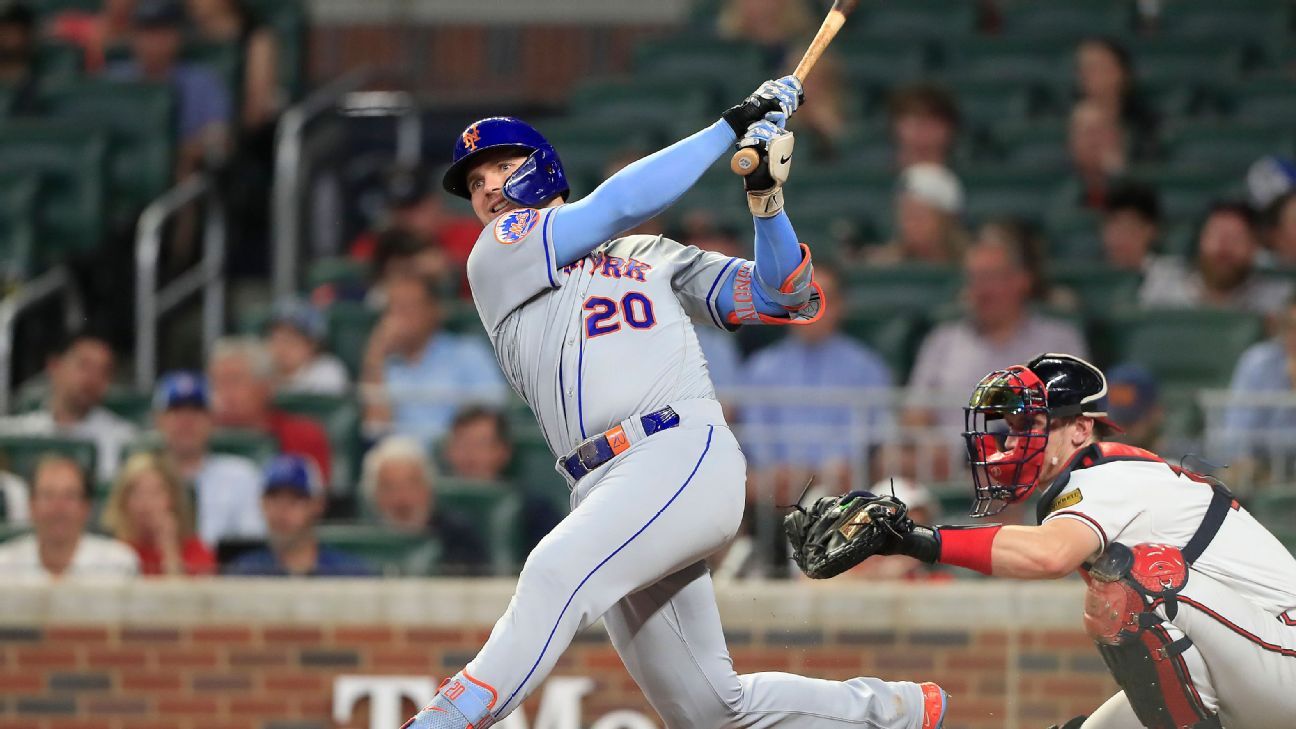
Pete Alonso didn't miss an opportunity to talk a little trash to the Braves after his latest monster home run, but emerging Atlanta ace Bryce Elder said he didn't have a problem with the Mets slugger's taunts.
After blasting a 448-foot two-run homer Tuesday, Alonso was recorded yelling toward Elder, "Throw it again! Throw it again, please! Throw it again," in reference to the right-hander's hanging slider.
Elder, who leads the National League with a 2.26 ERA, told reporters that he did not hear Alonso yelling at him and later said he was not insulted.
"I mean, if I hit one on the concourse, I might holler, too," Elder said.
Alonso's major-league-leading 22nd homer gave the Mets a 4-1 lead and was the second two-run blast surrendered in the fourth inning by Elder, who also yielded a long homer to Francisco Lindor.
The Braves got the last laugh, however, in the sixth inning when they rallied for four runs to take the lead for good.
After Sean Murphy's two-run double narrowed Atlanta's deficit to 4-3, Braves reliever Tyler Matzek appeared to yell "Throw it again!" toward the Mets. The Braves tied the game two batters later on an RBI double by Marcell Ozuna, who then scored the go-ahead run on Orlando Arcia's single. The run-scoring hits by Ozuna and Arcia both also came off sliders from Mets reliever Drew Smith.
Atlanta also exacted a measure of revenge against Alonso when closer Raisel Iglesias struck out the two-time All-Star on a 98 mph fastball for the first out of the ninth inning. The Braves (36-24) moved 6½ games ahead of the rival Mets (30-31) in the NL East with the 6-4 victory.
"It's always [big] against the Mets," Braves left-hander A.J. Minter told the Atlanta Journal-Constitution. "It's that division rivalry where it feels like a postseason atmosphere."
French Open 2023 results: Beatriz Haddad Maia beats Ons Jabeur at Roland Garros

Brazilian 14th seed Beatriz Haddad Maia reached her first Grand Slam semi-final by fighting back to stun Tunisia's Ons Jabeur in the French Open last eight.
Haddad Maia, who had never previously reached the third round of a major, recovered to win 3-6 7-6 (7-5) 6-1.
The 27-year-old is the first Brazilian woman to reach a Grand Slam semi-final since Maria Bueno in 1968.
Haddad Maia will play Polish top seed Iga Swiatek or American sixth seed Coco Gauff in Thursday's semi-finals.
Haddad Maia has become known for her ability to come through long tests, including in the Roland Garros fourth round when she outlasted Spain's Sara Sorribes Tormo in an epic lasting almost four hours.
That was the longest women's match of the season and, while the encounter against Jabeur was nowhere near as long, she again demonstrated her physical and mental endurance.
Against an opponent backed by a large number of flag-waving Tunisian fans on Court Philippe Chatrier, Haddad Maia started slowly in her first major quarter-final.
The world number 14, who served a 10-month doping suspension which ended in 2020, was broken three times in the first set as Jabeur took control.
Break opportunities were scarce in the second set until two chances not taken by Jabeur at 5-5 ultimately proved costly for the 28-year-old Tunisian.
Last year's Wimbledon and US Open runner-up missed the first break point with a forehand that went long, her opponent saving the other with a series of aggressive returns.
The Brazilian, having shown the importance of hanging in as Jabeur rattled through service games, eventually took her fourth set point to send the match into a decider.
Galvanised, the left-hander's heavy forehand returns caused more problems for Jabeur as she moved 3-0 ahead.
The pair exchanged breaks in the next two games before Haddad Maia, who could now hear the support of singing Brazilian fans, saved four breaks to hold for 5-1.
Jabeur, now becoming increasingly demoralised, spanked a forehand long on the second match point, leaving Haddad Maia looking flummoxed at what she had just achieved.


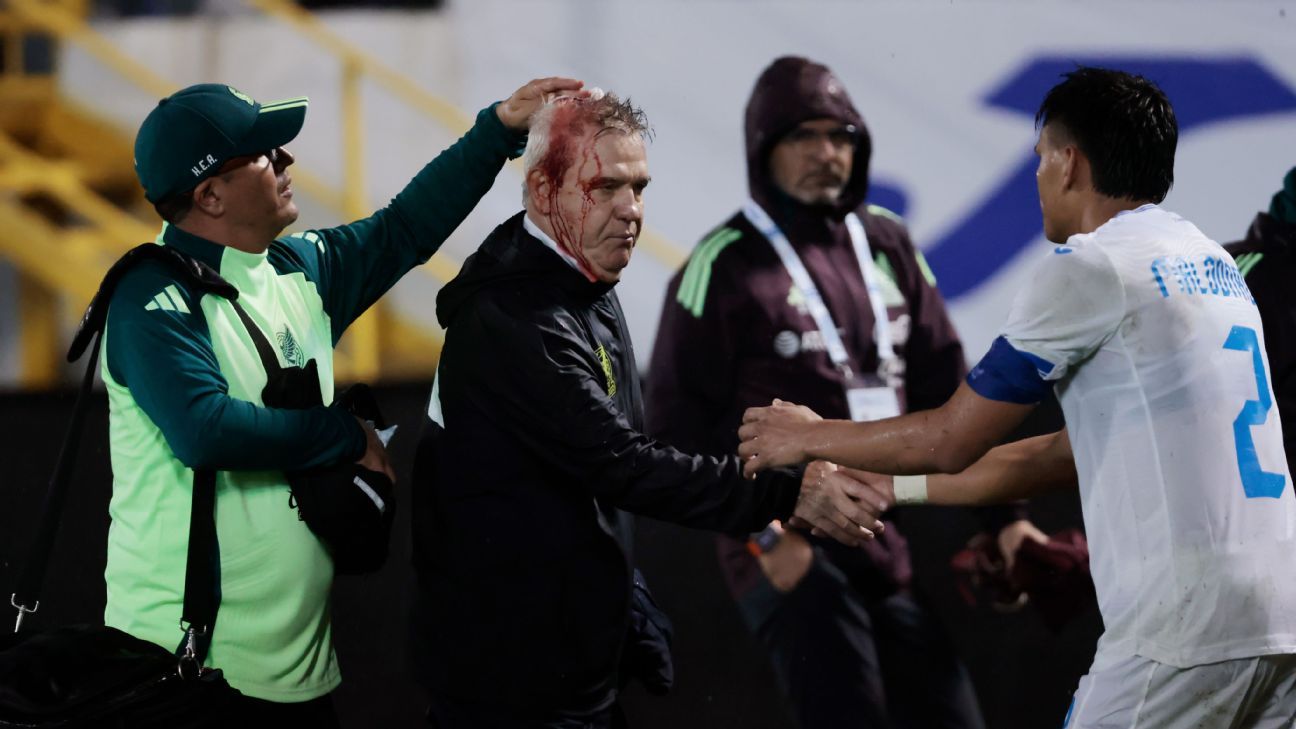
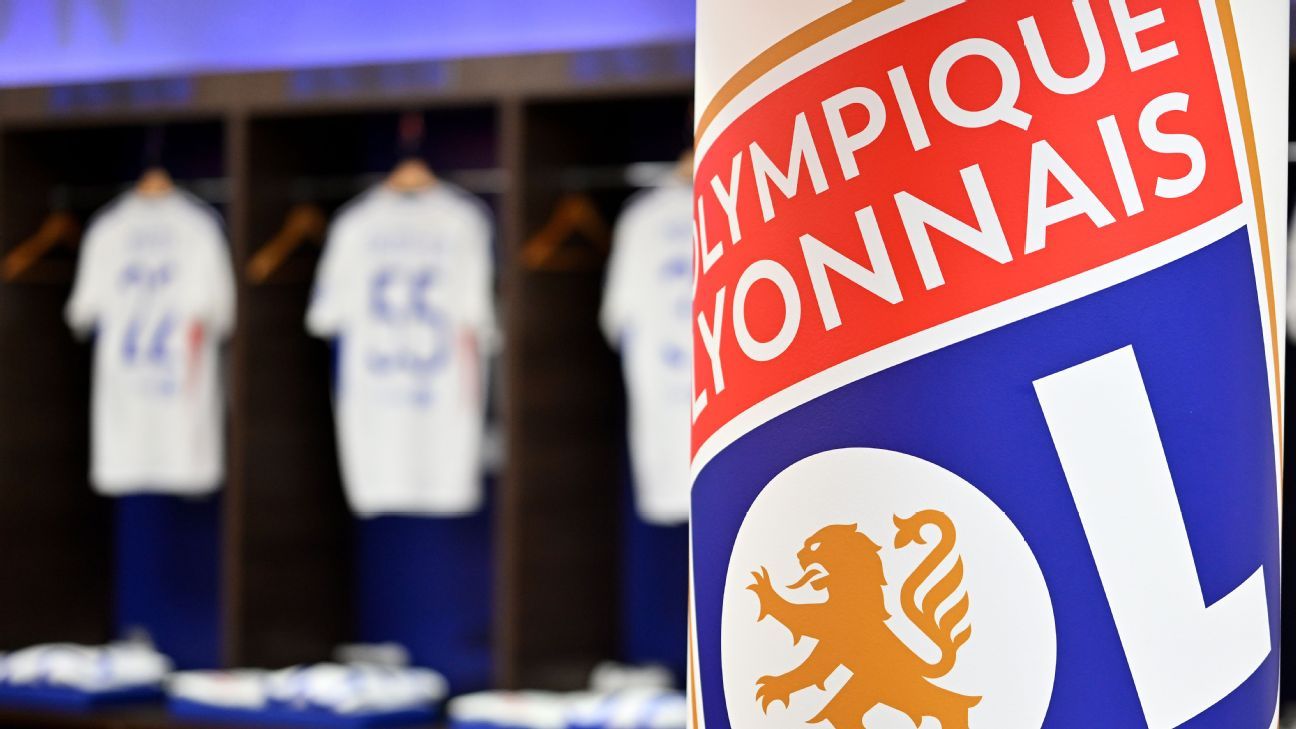






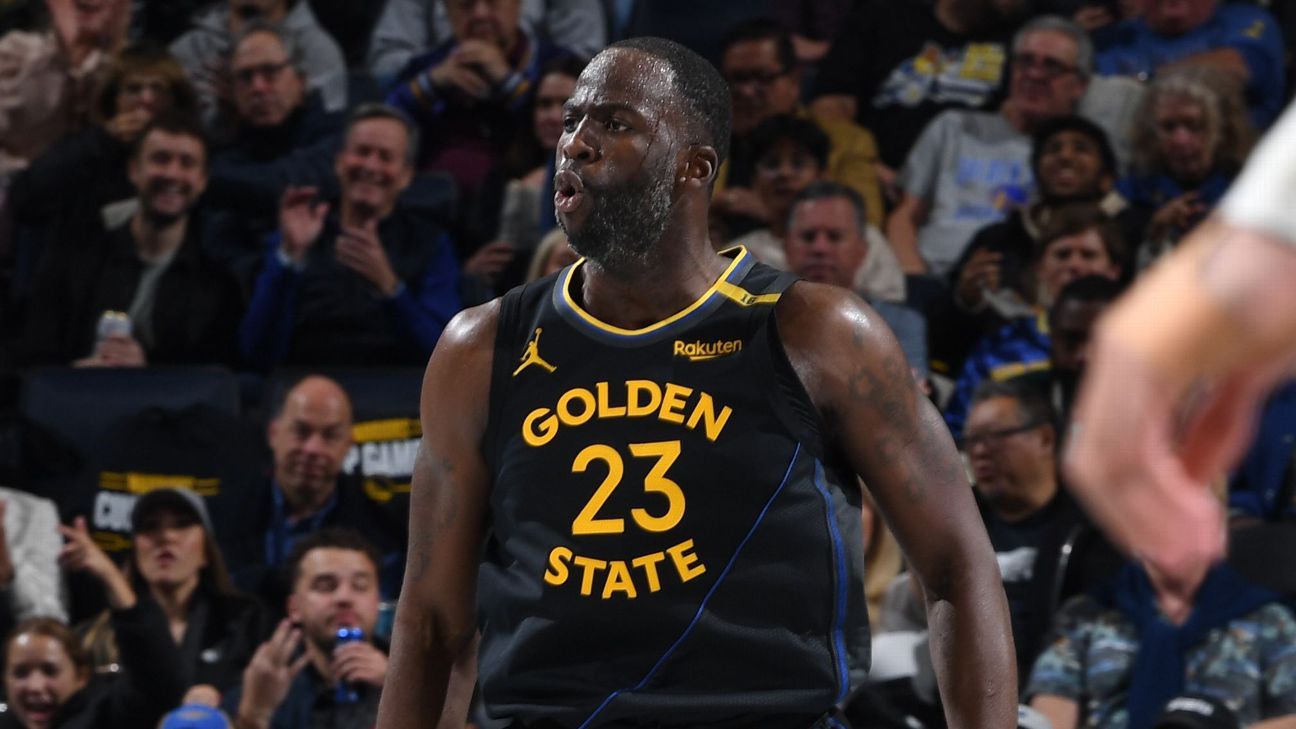
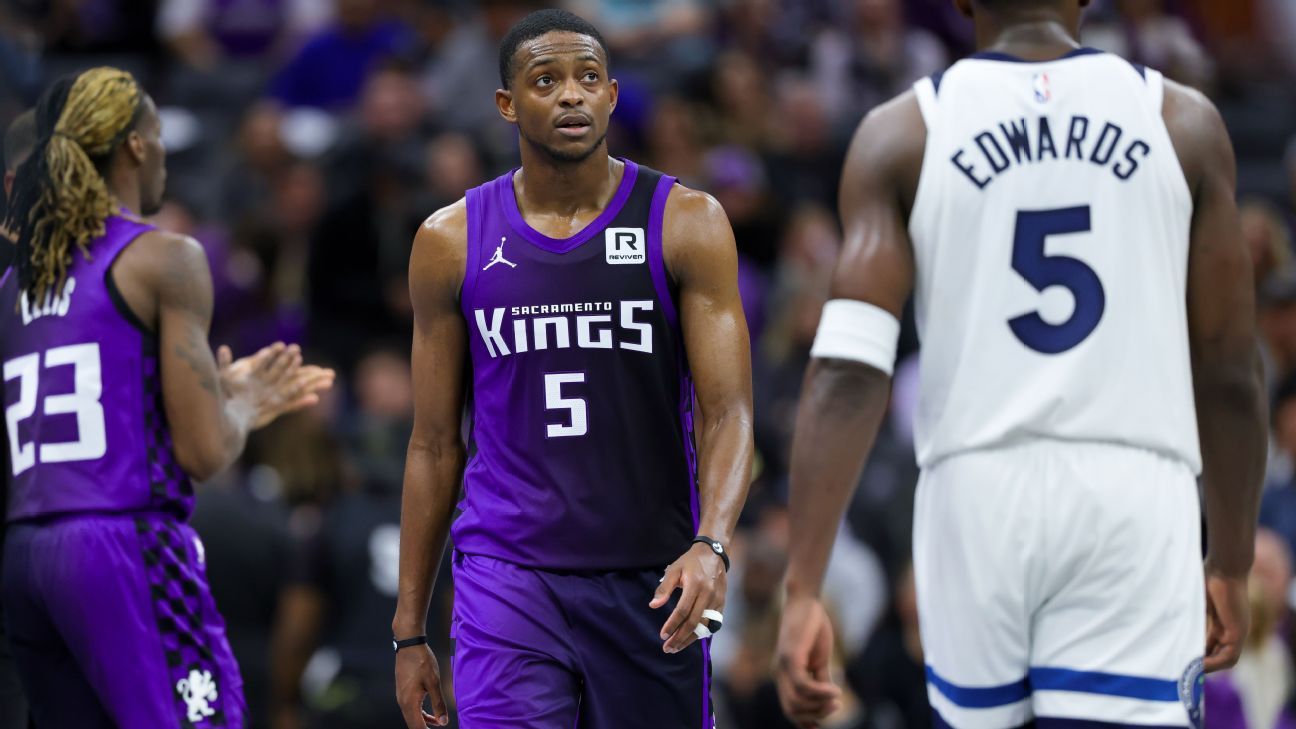
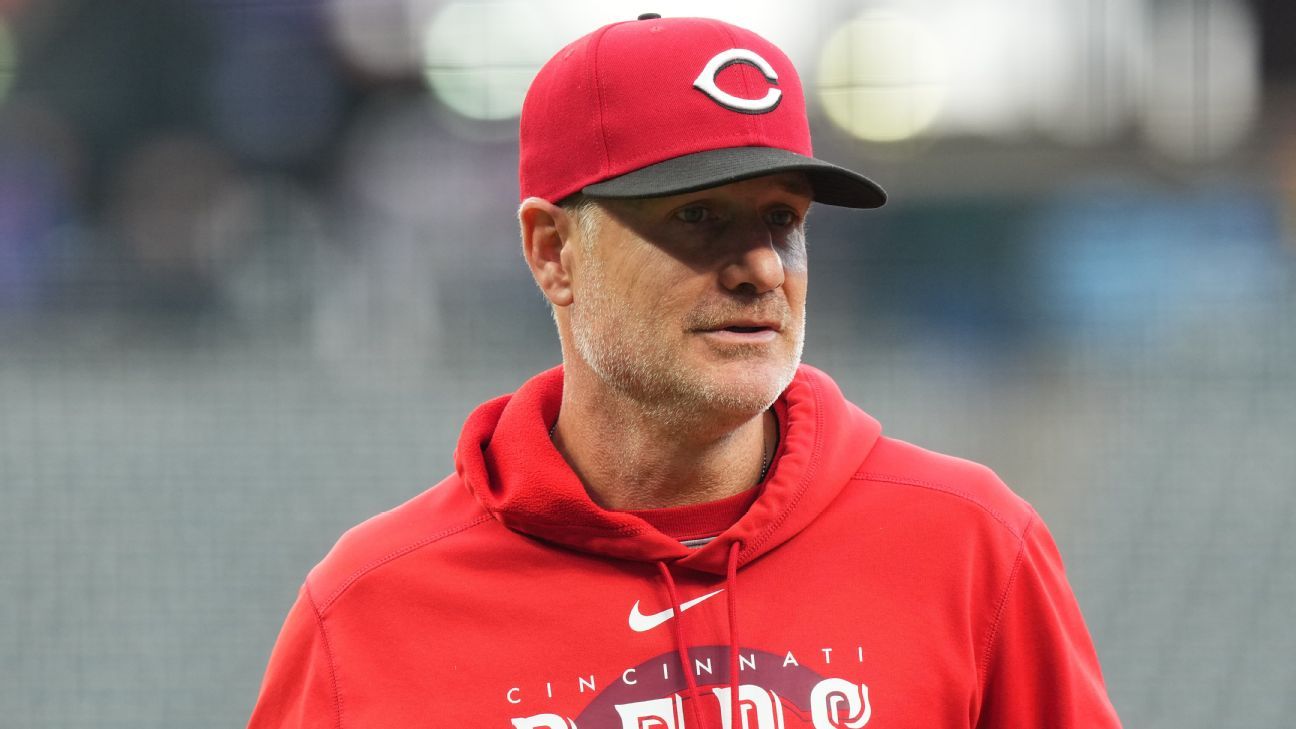
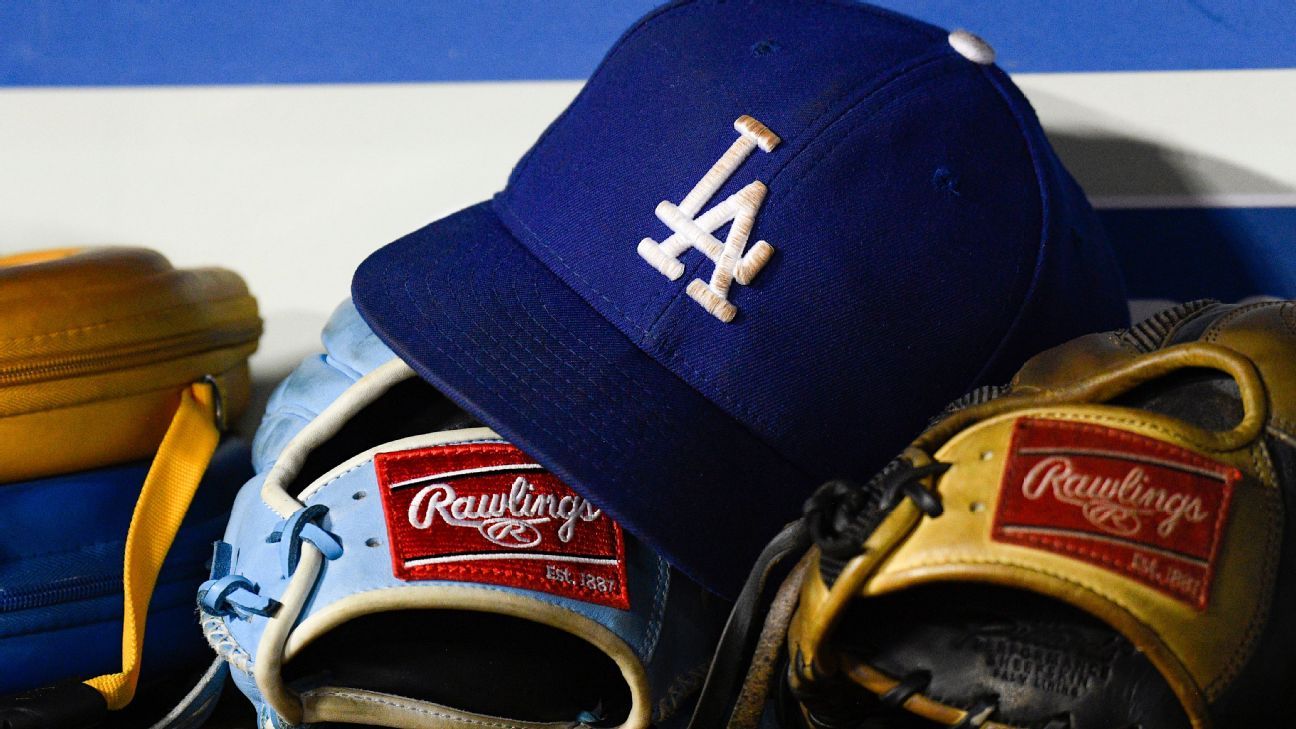

 Phone: (800) 737. 6040
Phone: (800) 737. 6040 Fax: (800) 825 5558
Fax: (800) 825 5558 Website:
Website:  Email:
Email: 






